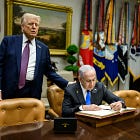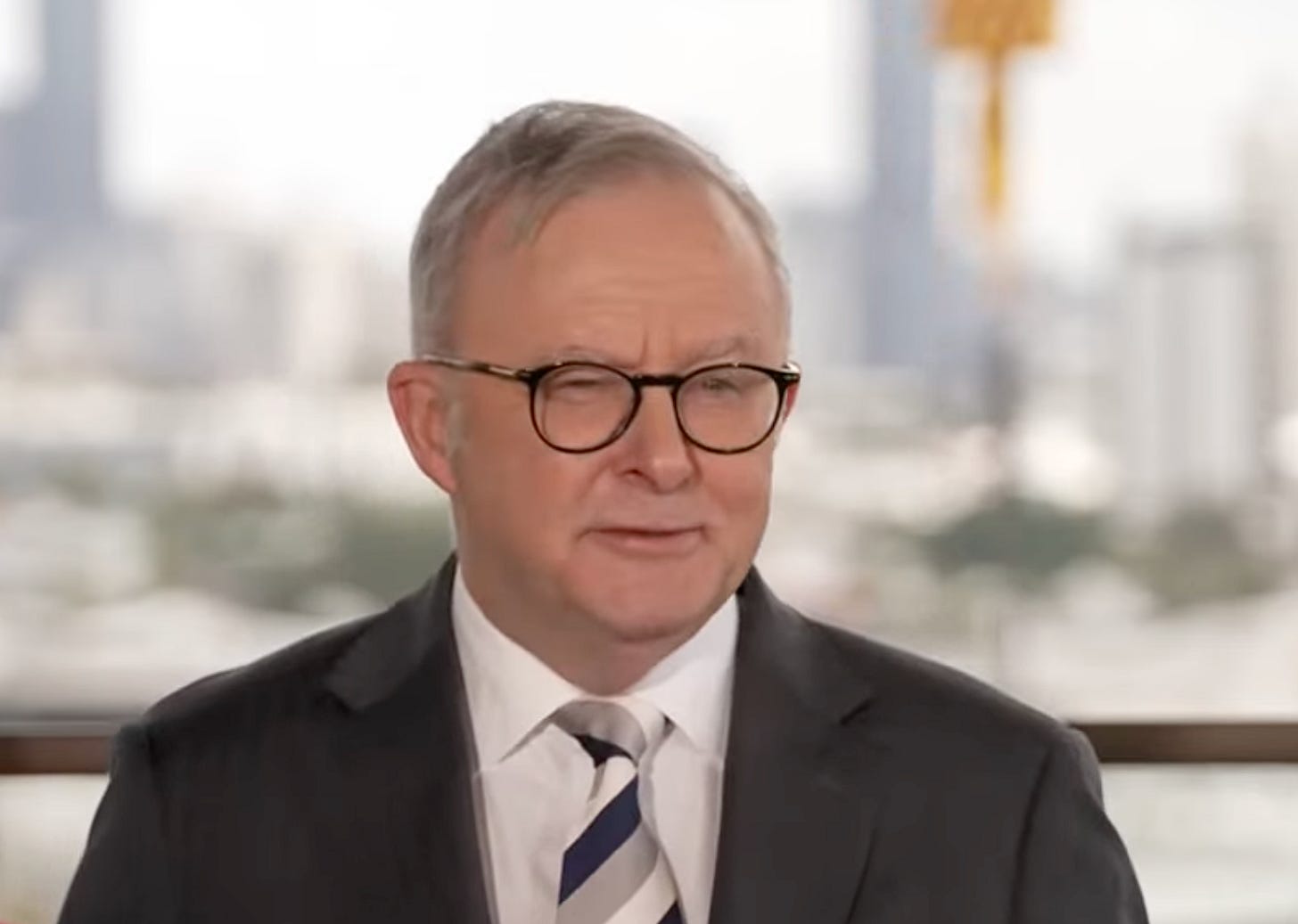Prime Minister Albanese Warns of Rising Political Violence, Says Security Threats “Far More Acute” Than Decade Ago
This piece is freely available to read. Become a paid subscriber today and help keep Mencari News financially afloat so that we can continue to pay our writers for their insight and expertise.
Today’s Article is brought to you by Empower your podcasting vision with a suite of creative solutions at your fingertips.
Prime Minister Anthony Albanese issued a stark warning Friday about escalating threats against Australian politicians, revealing his security concerns are dramatically worse than when he entered parliament while calling for the nation to preserve its tradition of accessible political engagement without succumbing to violence.
Speaking at a housing development announcement in Brisbane’s Stone’s Corner, Prime Minister Anthony Albanese addressed rising political violence in Australia with unusual directness, acknowledging that security measures protecting elected officials have intensified significantly in recent years.
“The security issues that I face are far more acute than 10 years ago, five years ago, certainly a lot more acute than when I was first elected,” Albanese said during the Friday morning press conference, according to the official transcript.
The Prime Minister’s comments came in response to questions about alleged threats against politicians, though he declined to discuss specific cases before the courts. His remarks follow a pattern of concerning incidents involving Australian political figures and reflect broader anxieties about political discourse in the social media age.
Truth matters. Quality journalism costs.
Your subscription to Mencari directly funds the investigative reporting our democracy needs. For less than a coffee per week, you enable our journalists to uncover stories that powerful interests would rather keep hidden. There is no corporate influence involved. No compromises. Just honest journalism when we need it most.
Not ready to be paid subscribe, but appreciate the newsletter ? Grab us a beer or snag the exclusive ad spot at the top of next week's newsletter.
Social Media’s Role in Threat Escalation
Albanese pointed to social media as a key factor enabling threatening behavior, noting the disconnect between online rhetoric and face-to-face interactions.
“The role of social media people being able to say things that they never say to your face is something I’ve spoken about regularly and there’s no place for violence, there’s no place for violent discourse either,” the Prime Minister said.
He emphasized the danger of normalizing threatening language: “We can’t normalise these sort of threats being made and think that that is business as usual because what we know is that it does lead to real tragedy.”
Sovereign Citizen Movement
The Prime Minister referenced multiple concerning incidents involving the so-called sovereign citizen movement, a loosely organized group that rejects government authority and legal frameworks.
Albanese noted he attended the funeral of police officers in Brisbane connected to sovereign citizen incidents. He also highlighted actions taken by state governments to address the threat.
“Victoria, the Cook government in WA have taken some really strong actions as well in taking weapons off people who don’t acknowledge the rule of law in this country,” he said.
Impact on Political Accessibility
Despite heightened security concerns, Albanese expressed determination to maintain Australia’s tradition of accessible political leadership, though he acknowledged having to “adjust some of my activity.”
“One of the great things about this country is that I could go to a shopping center in Sunnybank during the election campaign,” he said, referring to his ability to conduct spontaneous public engagements in Southeast Queensland. “We don’t want to lose that. I don’t want to lose that as Prime Minister.”
The Prime Minister cited specific examples of the kind of informal interactions he values: “I think that’s a good thing. I quite like being able to have a beer even at the Caxton Hotel wearing a blues scarf on the way to a State of Origin game.”
His comments reflect concern that escalating security requirements could fundamentally alter the relationship between Australian politicians and citizens, forcing leaders into the kind of heavily protected bubble common in other democracies.
Call for Lowering Temperature
Albanese repeatedly urged all parties to “turn down the temperature on debate,” explicitly including media organizations in that responsibility.
“I’ve said that, media have a role in that as well,” he stated, while declining to comment on specific cases under judicial review.
The Prime Minister emphasized the need for respectful disagreement: “We just need to turn down the temperature, have respect for people, have respect for the capacity of us to have debates and discourse and have difference whilst having respect for each other.”
He positioned this approach as central to his political leadership: “That’s something that I’ve tried to bring to political discourse in this country.”
International Context
While not citing specific incidents, Albanese referenced “events overseas where there is violence towards elected officials,” noting that “violence towards anyone is a bad thing to occur.”
His comments come amid a global trend of increasing threats and attacks against political figures, from assassination attempts to violent protests at political events.
Housing Announcement
The security discussion emerged during what was primarily a housing policy event, where Albanese toured a new Brisbane Housing Corporation development at Stone’s Corner that opened units for vulnerable residents including domestic violence survivors and people previously experiencing homelessness.
The Prime Minister met with residents including Karen, who received notification about her new home the same day her rental property was being sold; John, who transferred from inadequate housing; and Jan, who had been couch-surfing before securing accommodation.
“A roof over your head, that security is vital for your health, it’s vital if you’re undertaking education, it’s vital if you want the opportunity to work either full or part-time, but for your quality of life,” Albanese said. “It’s a foundation stone, literally.”
The development forms part of the government’s $43 billion Homes for Australia plan, which Albanese said is “making an enormous difference” as units come online across the country.
Political Context
The Prime Minister used the housing announcement to congratulate Griffith MP Renee Coffey, who won the traditionally conservative seat in a recent election. Albanese suggested Coffey’s advocacy for housing contributed to her victory.
“In Renee Coffey, this community has a champion who will stand up for the interests of people who need a local member who will advocate for them going forward,” he said.
The housing development includes both federal and state government funding, which Albanese described as “an example of governments working together to make a difference, including here in Brisbane.”
Additional Announcement
The Prime Minister also announced $5 million in federal funding for a renewable energy project at the historic Boggo Road jail site, which is being converted into an educational and technology precinct.
“This is a part of our city’s policy, our urban renewal support, this $5 million program, and a part of just revitalising our cities and making a difference here in Brisbane,” Albanese said.
Broader Policy Questions
The press conference covered numerous other topics including the Gaza ceasefire (which Albanese called a “very welcome advance” requiring “U.S. leadership”), Queensland energy policy, superannuation tax briefings, and questions about the National Anti-Corruption Commission.
On Trump’s role in the Gaza ceasefire, Albanese said: “I think President Trump deserves congratulations for the leadership that the United States has shown. We’ve always said that this will require U.S. leadership, and that is what we have seen here.”
However, the Prime Minister’s extended comments on political violence and security threats stood out as particularly notable given the rarity of such direct acknowledgment from sitting leaders about personal security concerns.
The Prime Minister concluded the press conference by emphasizing his government’s methodical approach to policy implementation: “We’re methodical, we’re orderly, we say what we will do and then we do what we will say.”
Sustaining Mencari Requires Your Support
Independent journalism costs money. Help us continue delivering in-depth investigations and unfiltered commentary on the world's real stories. Your financial contribution enables thorough investigative work and thoughtful analysis, all supported by a dedicated community committed to accuracy and transparency.
Subscribe today to unlock our full archive of investigative reporting and fearless analysis. Subscribing to independent media outlets represents more than just information consumption—it embodies a commitment to factual reporting.
As well as knowing you’re keeping Mencari (Australia) alive, you’ll also get:
Get breaking news AS IT HAPPENS - Gain instant access to our real-time coverage and analysis when major stories break, keeping you ahead of the curve
Unlock our COMPLETE content library - Enjoy unlimited access to every newsletter, podcast episode, and exclusive archive—all seamlessly available in your favorite podcast apps.
Join the conversation that matters - Be part of our vibrant community with full commenting privileges on all content, directly supporting The Evening Post (Australia)
Catch up on some of Mencari’s recent stories:

Israel and Hamas Agree to First Phase of Trump Peace Plan, Hostage Release Expected Within 72 Hours
It only takes a minute to help us investigate fearlessly and expose lies and wrongdoing to hold power accountable. Thanks!







